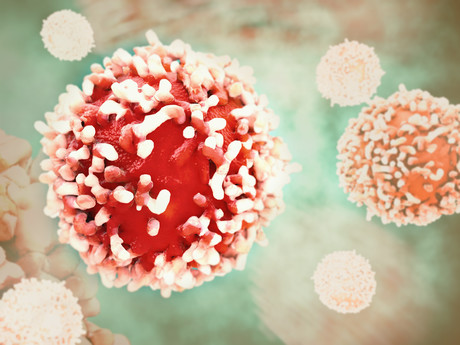Tumour-suppressive protein patrols metastatis sites

Belgian researchers have labelled the protein Caveolin-1 as a high-potential pursuit in the fight against cancer, describing the ‘anti-metastatic surveillance’ role of the protein for the first time.
The research was published in the journal Cell Reports and conducted by a team led by Professor Massimiliano Mazzone from the VIB-KU Leuven Center for Cancer Biology. His lab has been focusing on the tumour microenvironment for some time now, gradually disentangling topics such as tumour oxygen shortage, angiogenesis (the formation of blood vessels), macrophages (a type of white blood cell) and anticancer immunity.
While the role of tumour-associated macrophages at each step of cancer progression is already well established, the biology of ‘metastasis-associated macrophages’, their counterparts at the sites of cancer metastases, has been almost neglected. Understanding this field is of the utmost relevance, as metastases cause no less than 90% of human cancer deaths.
Many research projects have already implicated Caveolin-1 in both tumour-promotive and -suppressive functions, but its exact role has until now remained elusive. Professor Mazzone’s team has now succeeded in describing the mechanism of Caveolin-1 in metastatic macrophages, observing that upregulation of the protein in the lung environment clearly hinders metastatic growth.
“A surprising outcome, since macrophages are traditionally associated with cancer progression,” said Professor Mazzone. “But at the same time, the anti-metastatic, patrolling function of Caveolin-1 makes sense when one considers the relevance of the immune system in the lungs as the first barrier against [inhaled] pathogens and external bodies. You could say Caveolin-1 is a gatekeeper: high expression can protect the body against foreign bodies and diseases, while downregulation is prometastatic.”
Previous studies associated the loss of Caveolin-1 with more aggressive proliferation — and worse patient outcomes — in several types of cancer. Professor Mazzone’s findings directly confirm the suggestion that this protein may yield promising therapeutic perspectives.
“We have now learned that there is a huge difference in immunity at the metastasis compared to the primary tumour,” said Professor Mazzone. “And since metastasis is what kills most cancer patients, this research avenue deserves much more attention — which describes perfectly the direction of our next research projects!”
Retinal health linked to dementia risk, study shows
Researchers have discovered that the blood vessels at the back of the eye — called retinal...
Pancreatic cancer hijacks metabolism switch to help it spread
Pancreatic cancer hijacks a molecule known for regulating physiological processes, such as food...
Novel antibiotic activates 'suicide' mechanism in superbug
Researchers have discovered a new class of antibiotic that selectively targets Neisseria...




